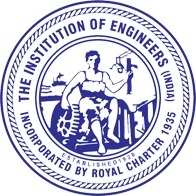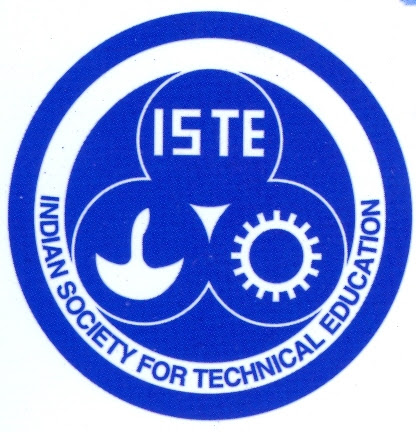- About
- Vision-Mission
- Laboratories
- Memberships
- Value Added Courses
- PEO/PSO/PO
- Curriculum & Syllabus
- Faculty
- Student List
- MOUs
- Certificate Courses
- Internships
- FAQ
At J.N.N Institute of Engineering, our Computer Science Engineers are meticulously prepared to design and develop software applications for a diverse range of industries. The Computer Science Engineering (CSE) subjects mainly cover the study of various programming languages and their applications. All the CSE subjects are broadly covered under the comprehensive computer science course we offer. J.N.N Institute of Engineering is recognized as one of the best colleges for CSE in Thiruvallur district, providing holistic education that equally focuses on both theoretical and practical aspects of engineering.
Our focus is on developing students’ problem-solving and learning skills, preparing them to excel in the rapidly growing tech industry. The B.E. Computer Science Engineering course at J.N.N Institute of Engineering empowers students to build a successful career in the field of computer science and engineering.
Career Opportunities
- Research Analyst
- Software Engineer
- Network System Administrator
- Software System Developer
- Database Administrator.
Vision
To produce globally competent, quality computer professionals and to inculcate the spirit of moral values for the cause of development of our nation
Mission
– Establish closer relationship with IT industries and expose the students to the
cutting edge technological advancements.
– Provide impetus and importance to beyond curriculum learning and thereby provide an opportunity for the student community to keep them updated with latest and socially relevant technology
– To impart interpersonal skills and ethical responsibilities to the students.
SEMESTER | SUB.CODE | LABORATORY NAME |
I | GE3171 | Problem Solving and Python Programming Laboratory |
II | CS3271 | Programming in C Laboratory |
III | CS3311 | Data Structures Laboratory |
III | CS3381 | Object Oriented Programming Laboratory |
III | CS3361 | Data Science Laboratory |
IV | CS3461 | Operating Systems Laboratory |
IV | CS3481 | Database Management Systems Laboratory |
VIII | CS3811 | Project Work |
| Computer Society of India |  |
| Institution of Engineers, India |  |
| Indian Society of Technical Education |  |
- HCL Training Resources
- GRE Training
- IBM Training Resources
- PO
- PEO
- PSO
Programme Outcomes
Engineering knowledge: Apply the knowledge of mathematics, science, engineering fundamentals, and an engineering specialization to the solution of complex engineering problems. |
Problem analysis: Identify, formulate, review research literature, and analyze complex engineering problems reaching substantiated conclusions using first principles of mathematics, natural sciences, and engineering sciences. |
Design/development of solutions: Design solutions for complex engineering problems and design system components or processes that meet the specified needs with appropriate consideration for the public health and safety, and the cultural, societal, and environmental considerations. |
Conduct investigations of complex problems: Use research-based knowledge and research methods including design of experiments, analysis and interpretation of data, and synthesis of the information to provide valid conclusions. |
Modern tool usage: Create, select, and apply appropriate techniques, resources, and modern engineering and IT tools including prediction and modeling to complex engineering activities with an understanding of the limitations. |
The engineer and society: Apply reasoning informed by the contextual knowledge to assess societal, health, safety, legal and cultural issues and the consequent responsibilities relevant to the professional engineering practice. |
Environment and sustainability: Understand the impact of the professional engineering solutions in societal and environmental contexts, and demonstrate the knowledge of, and need for sustainable development. |
Ethics: Apply ethical principles and commit to professional ethics and responsibilities and norms of the engineering practice. |
Individual and team work: Function effectively as an individual, and as a member or leader in diverse teams, and in multidisciplinary settings. |
Communication: Communicate effectively on complex engineering activities with the engineering community and with society at large, such as, being able to comprehend and write effective reports and design documentation, make effective presentations, and give and receive clear instructions. |
Project management and finance: Demonstrate knowledge and understanding of the engineering and management principles and apply these to one‘s own work, as a member and leader in a team, to manage projects and in multidisciplinary environments. |
Life-long learning: Recognize the need for, and have the preparation and ability to engage in independent and life-long learning in the broadest context of technological change. |
Programme Educational Objectives
– Our graduates shall pursue higher education and research, or shall have a successful career in computer and software industries, or shall emerge as entrepreneurs.
– Our graduates shall have the ability and attitude to adapt to emerging technological changes.
– Our graduates shall adapt to the changing career opportunities, assimilate new technologies and work in multi-disciplinary areas with strong focus on innovation and entrepreneurship.
Programme Specific Objectives
– To apply software engineering principles and practices for developing quality software for scientific and business applications.
– To adapt to emerging Information and Communication Technologies (ICT) to innovate ideas and solutions to existing/novel problems.
Faculty List – Academic Year 2023-2024 – View/Download
Faculty List – Academic Year 2022-2023 – View/Download
Faculty List – Academic Year 2021-2022 – View/Download
Faculty List – Academic Year 2020-2021 – View/Download
Student List – Batch 2023-2027 – View/Download
Student List – Batch 2022-2026 – View/Download
Student List – Batch 2021-2025 – View/Download
Student List – Batch 2020-2024 – View/Download
B.E CSE stands for Bachelor of Engineering in Computer Science and Engineering.
oth degrees are fundamentally similar, focusing on Computer Science and Engineering, but B.E CSE typically has a more theoretical approach, while B.Tech CSE is more application-oriented. Both degrees offer similar career opportunities and salary prospects.
The B.E CSE syllabus at J.N.N Institute of Engineering covers a range of subjects including programming languages, data structures, algorithms, computer networks, database management, software engineering and artificial intelligence.
B.E CSE subjects include:
Programming Languages (Java, C++, Python), Data Structures and Algorithms, Computer Networks, Database Management Systems, Software Engineering, Operating Systems, Artificial Intelligence and Web Technologies.
After completing B.E CSE, you can pursue advanced courses like M.Tech in Computer Science, MBA, or specialized certifications in areas such as Artificial Intelligence, Machine Learning, Data Science and Cybersecurity.
The average B.E CSE salary ranges from INR 3.5 to 7 LPA for entry-level positions. With experience, this can rise significantly, especially in roles like Software Engineer or Data Scientist.
The salary prospects for B.E CSE and B.Tech CSE graduates are quite similar, depending on the skills and experience of the individual. Both degrees offer lucrative salary packages in top tech companies.
Choosing B.E CSE at J.N.N Institute of Engineering means:
Comprehensive curriculum, State-of-the-art infrastructure, Experienced faculty, Strong industry connections and Excellent placement opportunities.
The B.E CSE course details include a balanced mix of theoretical knowledge and practical skills, with subjects ranging from basic programming to advanced computer science concepts. The course is designed to equip students with the necessary skills to thrive in the tech industry.

